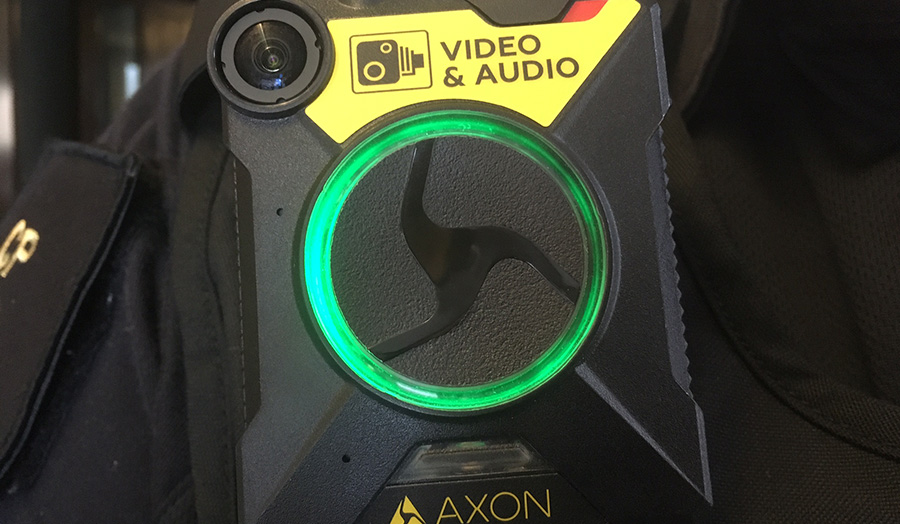Apply for this course
Please select when you would like to start:
Use the apply button to begin your application.
If you require a Student visa and wish to study a postgraduate course on a part-time basis, please read our how to apply information for international students to ensure you have all the details you need about the application process.
Why study this course?
Make a difference to the criminal justice, national and international security sectors, while having the opportunity to enhance your career on this professional doctorate programme.
This part-time distance learning course is aimed at people working within the criminal justice and security sector, you’ll combine your professional experience with new research into a particular area of interest to you. We’re particularly interested in applications if you want to further the social justice agenda within your field of expertise or professional experience.
Take your career to the next level
Aimed at people working within the criminal justice and security sector, you’ll combine your professional experience with new research into a particular area of interest to you
Improve your study and research skills
As research is key to this professional doctorate, you’ll learn both qualitative and quantitative analytical skills that will enable you to carry out your own research
Benefit from our links to the industry
The department has strong links with the Met Police, the Probation Service, the Youth Justice Board, plus various embassies and high commissions
Course modules
The modules listed below are for the academic year 2024/25 and represent the course modules at this time. Modules and module details (including, but not limited to, location and time) are subject to change over time.
Year* 1 modules
Year 2 modules
Developing and Shaping Policy
This module currently runs:spring semester
(core, 20 credits)
This module offers students the chance to understand the inner workings of policy making, critically evaluate current local, national government and sector policy, and understand how to write policies.
Students will explore how policies are developed including considering the role of the media, public opinion, public consultation, lobbying, special advisors, political and economic ideology and funding on the policy development process.
The module will give space to allow students to understand how to critique a policy through using case studies that are relevant to their field of work before exploring developing their own policy position.
The module aims are as follows:
- To consider and critically engage with key concepts of policy making;
- To provide an understanding of the factors that influence localised, national and international policies;
- To gain a comprehension of the role of business and civil society in policy development;
- To explore the dynamics between funding and policy;
- To understand the policy making process.
This is a core module for the Dprof Crime, Policy and Security.
Read full detailsSecurity and Policy in a Global Context
This module currently runs:autumn semester
(core, 20 credits)
The module introduces key ideas involved in studying security policy issues in the contemporary world. Students will consider how social, political as well as international relations processes can play a role in constructing and reconstructing security. Topics that will be elaborated on include community, identity, statehood, and political determination. The module focuses on both contemporary and historical security policy issues such as community safety, arms race policy, and the lack of regulatory policy on private military companies. We will also examine the knowledge learned through country cases, such as Cyprus and Northern Ireland, Israel and Palestine, Syria, Russia, China. The course aims to expose students to contemporary debates in security policy and its implementation as well as to the various forms in which security is manifesting today.
The module aims are as follows:
- To consider and critically engage with key concepts and theories relating to global security;
- To provide an understanding of how wider socio-political factors impact national security;
- To gain a comprehension of historical and contemporary trends in security policy;
- To offer a critical assessment of the current security policy develops and challenges;
- To understand and critically evaluate security needs within a broader political and cultural realm.
This is a core module for the Dprof Crime, Policy and Security.
Read full detailsSecurity, Policy and Society
This module currently runs:summer studies period
(core, 20 credits)
This module aims to ensure that students have an understanding of the theoretical and philosophical contexts within which security, policing and community safety are constructed
This is a core module for the Dprof Crime, Policy and Security.
Read full detailsAddressing Disproportionality
This module currently runs:autumn semester
(core, 20 credits)
This module is an opportunity for students to engage with the growing literature and practice around disproportionality, White privilege, and the role that racism and oppression has played within the criminal justice system.
This module will challenge students to reflect on their own position and role within the justice system, including the local and systematic power structures they are part of and consider how they can leverage their social and cultural capital to influence change. The module will enable critical engagement with local and national and international policy debates and consider the impact western hegemony has had on criminal justice systems around the world, before exploring what alternatives are possible.
The module supports students to consider what is needed to address disproportionality within all aspects of the criminal justice system including preventative measures such as public health and situational responses to crime, representation within the police service, arrest and enforcement statistics, criminal justice processes and incarceration. Students will be encouraged to see themselves as agents of change in their workplaces, sectors and wider afield.
The module aims are as follows:
- To consider and critically engage with key concepts;
- To provide an understanding of the historical and global trends of disproportionality within the criminal justice system;
- To nurture a self-reflective approach to responses to disproportionality, inequality and oppression;
- To encourage a globally grounded comparative analysis of the factors influencing disproportionality;
- To critique current responses to disproportionality and explore emerging ideas to address the issue.
This is a core module for the Dprof Crime, Policy and Security.
Read full detailsAdvanced Professional Learning
This module currently runs:all year (September start)
(core, 60 credits)
This module is an opportunity for students to engage gain credit for their professional knowledge and experience alongside developing their research proposal
This module will give space for students to take stock of their existing knowledge, professional networks, professional experiences and status in the sector to show the academic value of this and how it will be utilised at thesis stage.
As part of the process students will be challenged to reflect of their status and professional understanding and consider their future development needs.
The module aims are as follows:
- To support students identify and document their professional work-based learning;
- To provide an understanding of how professional knowledge and experience can enhance academic pursuits;
- To nurture a self-reflective approach to professional status and knowledge;
- To help students identify and plan a manageable but influential professional doctorate research proposal;
- To identify future career development pathways.
This is a core module for the Dprof Crime, Policy and Security.
Read full detailsLeadership and Ethics
This module currently runs:summer studies
(core, 20 credits)
This module is designed to look at leadership and management within public service, particularly within the criminal justice system. The module will look at ethical issues and dilemmas that can affect leadership decisions. It will draw on a body of work that explores the difference between managerial and leadership styles and help students to identify how to influence those more senior to them, lead by example, and motivate staff. There will be a specific focus on managing change, supporting staff through structural reorganisations, and how to identify and nurture new talent.
Read full detailsResearch Methods
This module currently runs:spring semester
(core, 20 credits)
The module aims to:
1. Assist students in designing and conducting research for their thesis, and in
developing their skills of critical reflection and analysis.
2. Develop a competence in understanding the strengths and limitations of quantitative
and qualitative research.
3. Develop a competence in analysing quantitative and qualitative research data and
writing research reports.
4. To critically appraise quantitative and qualitative research produced by statutory
agencies and voluntary sector organisations in order to enhance their employment prospects.
Thesis
This module currently runs:spring semester
(core, 360 credits)
Students will be supervised to produce a piece of empirical research that addresses an issue relevant to their professional environment. This is an independent study module, with students receiving monthly supervision from 2 supervisors.
This module involves the submission of a 50,000-word research thesis over a minimum of a 2-year period.
This is a core module for the Dprof Crime, Policy and Security.











.jpg)